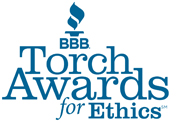When my husband and I planned a trip to Australia last year, I wondered, "Would anyone in my family be able to settle my affairs if anything happened to us?" It was my first trip going so far from home, and I guess my imagination was running a little wild.
You don’t have to travel halfway around the world to consider putting your affairs in order. If you have not executed these legal documents, you should make it a priority to do so. I made it a New Year’s resolution and got it done.

Estate planning is the process of planning for the transfer of your assets upon your death and designating guardians if you have minor children. But it also includes making plans for your care if you become incapacitated. Make your plan while you are of sound mind; don't wait until a situation arises where an estate plan must be hastily prepared or left to the court to make decisions on your behalf. Allow yourself time to think about how you want someone to handle your affairs.
As you probably have figured out, estate planning isn’t something done only by wealthy people.
Estate planning packages may vary depending on state law. According to Investopedia, every estate plan should have these six documents:
- Will or trust
- Letter of intent
- Durable power of attorney
- Healthcare power of attorney
- Beneficiary designations
- Guardianship designations
In this three-part series, we highlight each document, explain what it covers, and include resources where you can learn more about why you might need this legal document.
Part 1 highlights Wills, Trusts, and Letter of Intent.
Wills
An AARP survey found that 2 out of 5 Americans over age 45 don't have a will. At Living Well Stores, we believe this is an important life event, which is why we are providing information to help you get started. You may feel challenged to think of planning for what happens after you are gone, but consider the alternative – that someone else makes those decisions for you. A current will is a gift of love to your family.
Owning expensive homes and jewelry or having great wealth are not the only criteria for writing a will. Sure, you need to designate what happens to your valuables, but you may also want to distribute sentimental memorabilia, personal collections, and family heirlooms to family and friends.
When you consult an estate planning attorney, she will provide you with a checklist to guide you through the will-writing process. Using a qualified attorney can make the process easier because she will help you think through difficult decisions. She can even help come up with creative alternatives if you are having trouble deciding who gets what.
Minimizing estate taxes for family members who receive your estate is another goal that a well-drafted will should address. Click here to learn about six ways to reduce "death taxes."
As you proceed through the development of your will you may discover that you also need to consult with your banker, insurance agent and your investment advisor to ensure that all of your beneficiaries have been designated and are still living. This would be the right time to make changes if necessary. Beneficiaries of financial accounts may pass outside the designations of the will, so you should ensure they are current.
To learn more about the actual writing of a will click here for a Will Worksheet from AARP.
Trusts
Setting up a trust can be part of a thorough estate plan. Why would you need a trust? Here are seven reasons from LegalZoom.com:
- Avoiding probate
- Avoiding or delaying taxes
- Protecting your assets from creditors of both you and your beneficiaries
- Maintaining privacy regarding your assets
- Exercising greater control over your assets than might be achieved with an ordinary will
- Allowing you to qualify for certain benefits, such as Medicaid for long-term care
- Providing financial support for a person with a disability, while allowing the person to receive government disability benefits
How does a trust help you avoid probate? When you set up a trust, your property is transferred into it, and a trustee is appointed. The trustee now "owns" your property, although you still control it. When you die only property you own goes through probate. Property owned by your trustee does not go through probate.
What's so bad about probate? The bottom line is that it's a time-consuming process that involves courts, lawyers, paying taxes, and the public filing of your will. A trust avoids all of this.
Trusts are complex arrangements with various alternatives that are beyond the scope of this series. If the information we have provided makes you want to know more, here are three articles to help you learn more about trusts:
Probate, and Reasons to Avoid It
What You Need to Know to Set Up a Trust
Letter of Intent
Also referred to as a Letter of Instructions, a Letter of Intent is not a legal document and is non-binding. It's up to your executor to follow your wishes, and the Letter of Intent is a plain-language way to make those wishes known.
Estate planners recommend you write a letter of intent as a guide to your family and executor for your final wishes.
FindLaw.com mentions these 15 items to cover in your Letter of Intent:
- The exact location of the will.
- Complete instructions for the burial/cremation (veterans may consider being buried in national cemeteries).
- An exhaustive listing of friends, relatives, and others who should be contacted upon your death.
- The exact location of all important documents, such as real estate deeds, divorce papers, birth certificate, any other legal documents, and records.
- Any information related to membership in societies, lodges, or other such organizations (Freemasons, for example). Many of them offer death benefits for named beneficiaries.
- Where documents related to life insurance may be found, name of insurer(s), policy number(s), etc.
- All bank account information, including the names of banks and account numbers.
- A listing of any U.S. Savings Bonds (include names, denominations, and serial numbers).
- A listing of any stocks or bonds (and where they can be found).
- Any pension plan information.
- Income tax returns, both state and federal, from the past few years.
- A statement regarding any changes to your will.
- Location of any outstanding or recurring bills, plus a list of any outstanding personal debts.
- Where bills and records of payment are located.
- Any large gifts that you have given in the past few years.
To learn more about estate planning, check out the entire series:
Part 1: Wills, Trusts and Letter of Intent
Part 2: Durable Power of Attorney and Healthcare Power of Attorney
Part 3: Beneficiary and Guardian Designations and other considerations
Note: The information provided on this website does not, and is not intended to, constitute legal advice; instead, all information, content, and materials available on this site are for general informational purposes only. Information on this website may not constitute the most up-to-date legal or other information. This website contains links to other third-party websites. Such links are solely for the convenience of the reader, user or browser; Living Well Stores does not recommend or endorse the contents of the third-party sites. Contact an attorney if you require legal advice.













